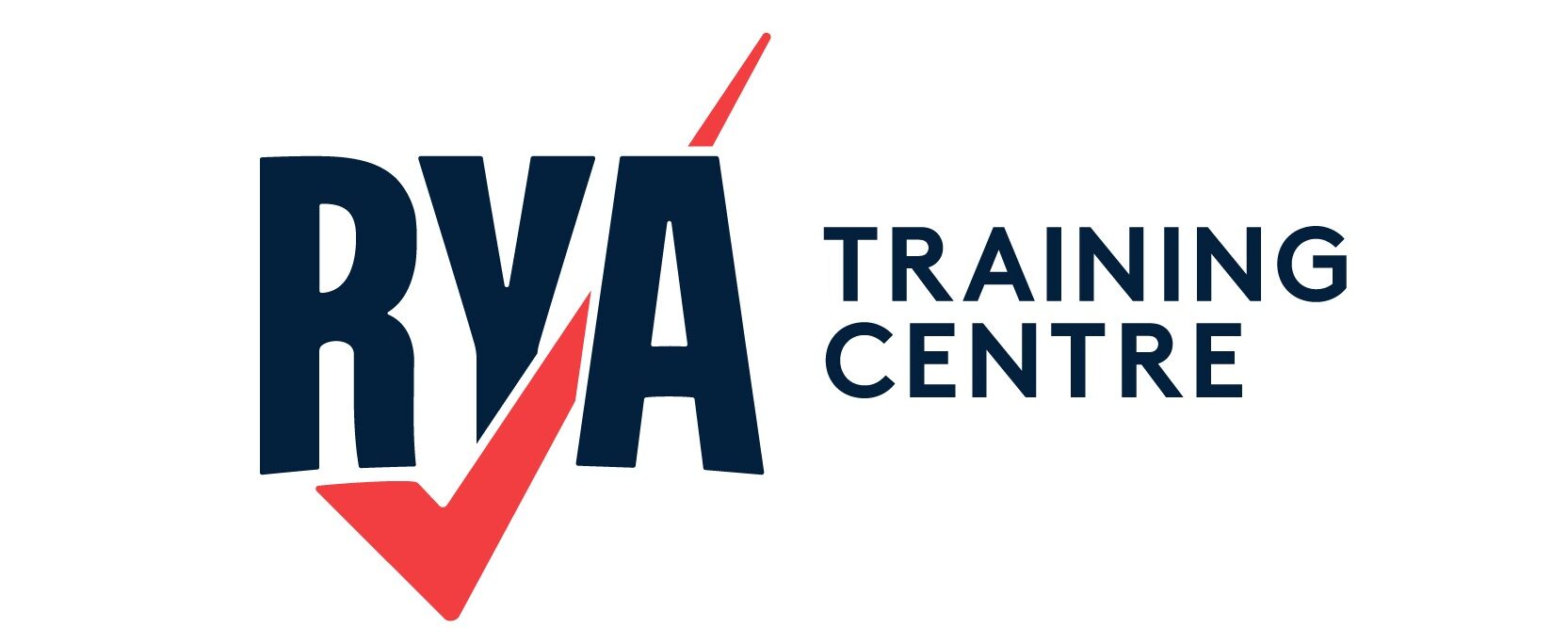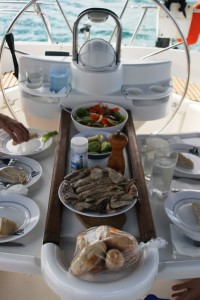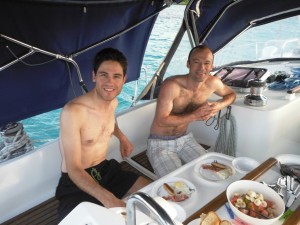 Sailing along in the hot sun all day. The cooling sea breeze whips up the salt water spray, and you taste the sea on your lips. It’s hungry work this sailing; everyone seems to have the appetite of a whale at the end of the day.
Sailing along in the hot sun all day. The cooling sea breeze whips up the salt water spray, and you taste the sea on your lips. It’s hungry work this sailing; everyone seems to have the appetite of a whale at the end of the day.
Cooking on Boats
Everyone likes to eat well; especially after a day out at sea. Cooking on boats can be a big change to cooking at home. There is no reason why you can’t create delicious meals at sea – Alex has even cooked family Christmas dinners on board! In this blog, we look at how to adapt to cooking on boats, and what additional considerations there are on board.
 Cooking on Boats – Provisions and Victualling
Cooking on Boats – Provisions and Victualling
Once you leave the dock then you need to have everything on board that you want to use. This includes ingredients, cooking implements, and of course gas!
The RYA’s beginner courses look closely at how to victual and prepare for being at sea. You will work with your instructor to plan, store, cook, and serve food to your other crew mates.
List making is the best place to start, and it means you won’t forget anything. Simple recipes are easier to adapt at the last moment so make sure you have a good range of basic ingredients.
One thing to remember in the Caribbean is that some ingredients are not readily available, and you have to adapt to what is on sale that day. When sailing around Grenada and the Grenadines there is opportunity to buy fresh produce on the larger islands – a great way to try different local fruits, vegetables, and fish (they are so delicious!)
 Cooking on Boats – Storage
Cooking on Boats – Storage
Storing your food can be an interesting activity on a boat. Obviously, there is not as much space as at home, and so you have store your items cleverly. Packaging can be bulky so we recommend having re-usable plastic containers and ziplock bags to hand. Tins are nice and easy to store in lockers.
You need to consider whether you have a fridge or a cool box on board. How long will produce last and which order should you cook things in?
It’s not just provisions you should think about, but the limited preparation space, and storage of utensils and pots etc. Remember that the stove may have only a few top burners and a small oven. This means you need to consider the timing of cooking your meal too.
One last thing is that you may not have electrical appliances – use recipes that are designed for hand mixing to make life much easier!
 Cooking on Boats – Safety First
Cooking on Boats – Safety First
Safety in the galley is of the utmost importance. When cooking on boats, hot food, gas stoves, and constant motion are not things to take lightly. Your skipper will give you a full safety briefing, including gas safety when you arrive.
In the Caribbean we are immensely lucky that every day is warm and sunny. However, this means we should limit the amount of time that we use the oven to keep the boat cooler inside.
The boat is in constant motion, and so you have to be constantly aware of how things will move around. Simple jobs like using sharp knives, boiling water, and putting things down to rest on the side all require extra special attention. Try not to leave things unsecured that might spill or break. I find that sitting down is normally the best way to prepare food!
All of these things take a little time to get used to. Don’t worry as you will soon pick them up, and they will be become second nature to you.
 Cooking on Boats – Water
Cooking on Boats – Water
On any boat, water is at a premium. The water needs to be used for washing hands, dishes, cleaning, showering, drinking, and food preparation. The two main rules are: not to waste any water, and to re-use water where possible. Your instructor or skipper will show you how to conserve as much water as possible while on board.
Students are required to take an active part in the daily duties on board. Here is a great resource for recipes for cooking on boats. Get stuck in and be part of the team!
 Our skippers are superb cooks, as well as fine instructors – they always receive great compliments at the end of a trip. We pride ourselves on providing hearty and healthy cuisine to our guests and students. The skippers are happy to cater to different dietary requirements with advance notice – just let us know your preferences on the booking form.
Our skippers are superb cooks, as well as fine instructors – they always receive great compliments at the end of a trip. We pride ourselves on providing hearty and healthy cuisine to our guests and students. The skippers are happy to cater to different dietary requirements with advance notice – just let us know your preferences on the booking form.
Cooking on boats sounds like quite a lot to think about for the first time! Trust me, it will start to come naturally after a few days. It really is part of the fun of living on a boat, and adds to the adventure.





